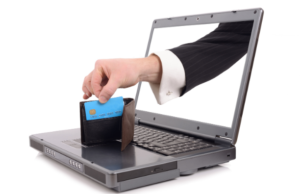
Understanding Identity Theft
Identity left is a highly talked about topic, but do you really know what it is? USA.gov defines identity theft as when “someone uses your personal or financial information without your permission.” This can cost the victim their credit status and/or large sums of money. Identity theft is a type of fraud where thieves often use manipulation techniques to trick people into disclosing personal information about themselves and their finances. It’s important to educate yourself and your loved ones about identity theft and how to prevent it.
Common Methods Used by Identity Thieves
Identity thieves can use multiple channels and methods to steal your identity. In the digital age, information is often easy to acquire. Through channels of social media, phone calls, and email identity thieves are able to acquire your information through and use it to access your accounts. Here are some signs of identity theft that you should continue to be aware of.
Signs of Identity Theft
- Bills for items you did not buy
- Debt collection calls for accounts you did not open
- Information on your credit report for accounts you did not open
- Denials of loan applications
- Mail stops coming to, or is missing from, your mailbox
According to the official USA.gov website.
Resources and Services for Victims of Identity Theft
If you think you’ve fallen victim to identity theft, here are steps you should take.
- If you’re suspicious about being prone to identity theft—contact your bank to turn off your cards and put a hold on your accounts. Depending on your bank, you may be able to do this through an app.
- If money has already been withdrawn, you must report the identity theft.
- Contact The Federal Trade Commission (FTC) online at gov or call 1-877-438-4338 to report theft and create a recovery plan.
- Contact a major credit reporting agency and ask them to place fraud alerts and a credit freeze on your accounts.
- Contact your bank and credit providers to explain what’s happened and so they can hopefully report and reverse charges.
Preventing Identity Theft
Although identity theft can be a scary topic, there are ways to prevent it.
- Create strong unique passwords for your accounts and change them every three months.
- Safely store personal documents and sensitive information online and offline (for example, don’t carry your Social Security card in your wallet).
- Do not share your personal information like your bank account number, Social Security number, or date of birth—especially to strangers on the phone, over email, or through text.
- Review credit card and debit card statements and make sure they line up with when and where you’re using them.
Additional Resources and Services
If you want local help to guide you through the prevention and recovery steps connected with identity theft, make an appointment with us at the Firefighters Credit Union today! We have office locations in La Crosse, Onalaska, and Holmen. Protect yourself and your finances.


